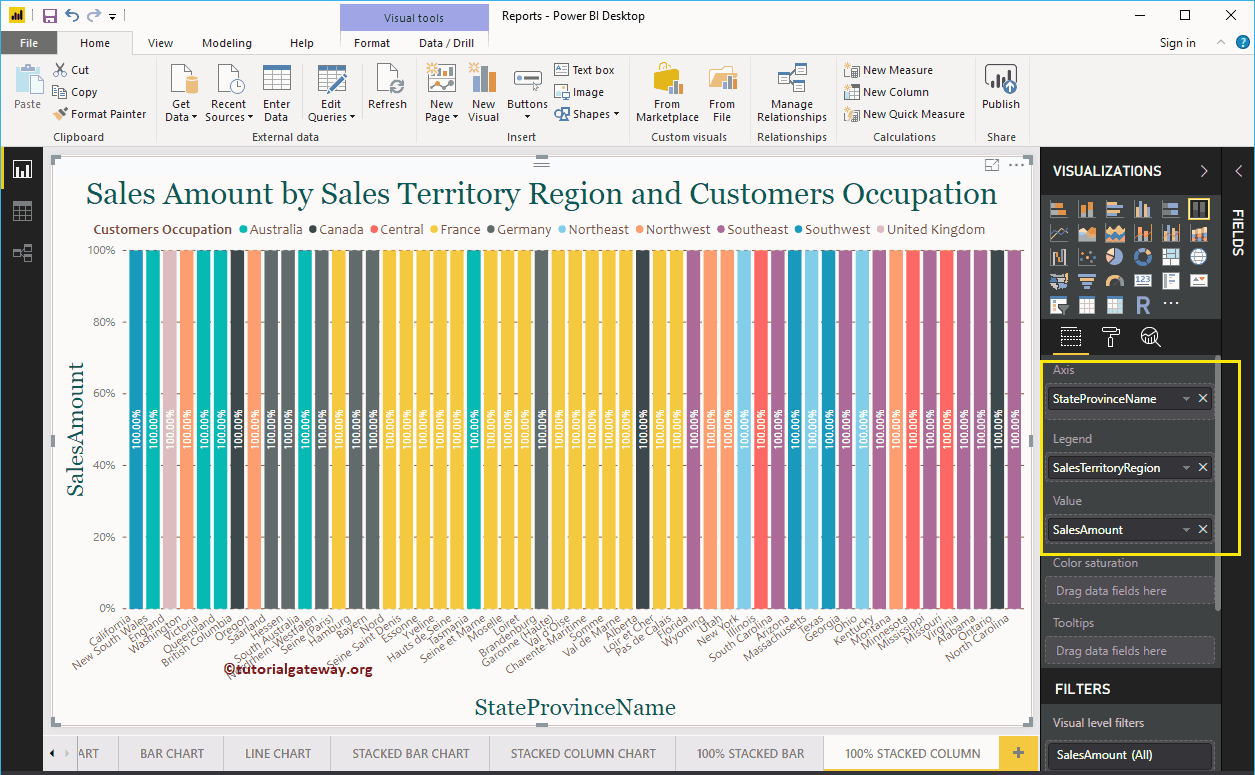The Power BI 100% Stacked Column Chart displays the metric information in percentages. Let me show you how to Create a 100% Stacked Column Chart in Power BI with example.
For this Power BI 100% Stacked Column Chart demo, we are going to use the SQL Data Source that we created in our previous article. So, Please refer to Connect Power BI to SQL Server article to understand the Power BI Data Source.
How to Create 100% Stacked Column Chart in Power BI
To create a Power BI 100% Stacked Column Chart, first Drag and Drop the Sales Amount from the Fields section to the Canvas region. It automatically creates a Column Chart.
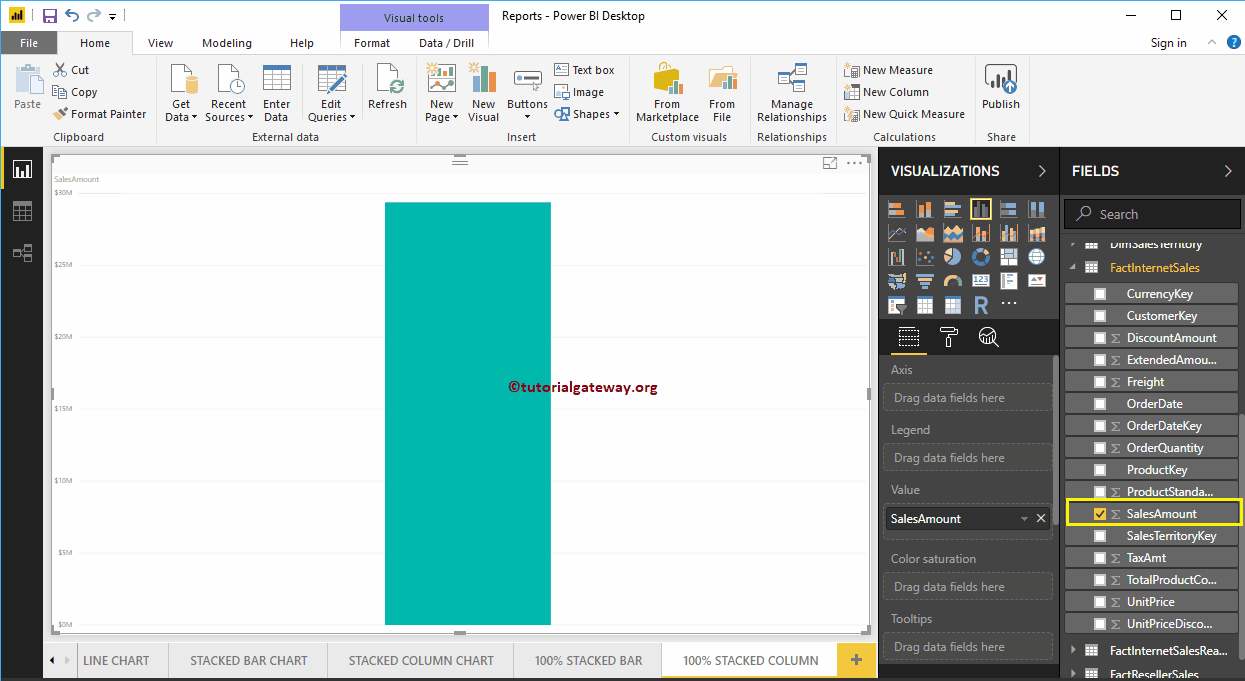
Next, let me add Sales Territory Region Name to the Axis section. This Column Chart shows the Sales Amount by Sales Territory Region Name.
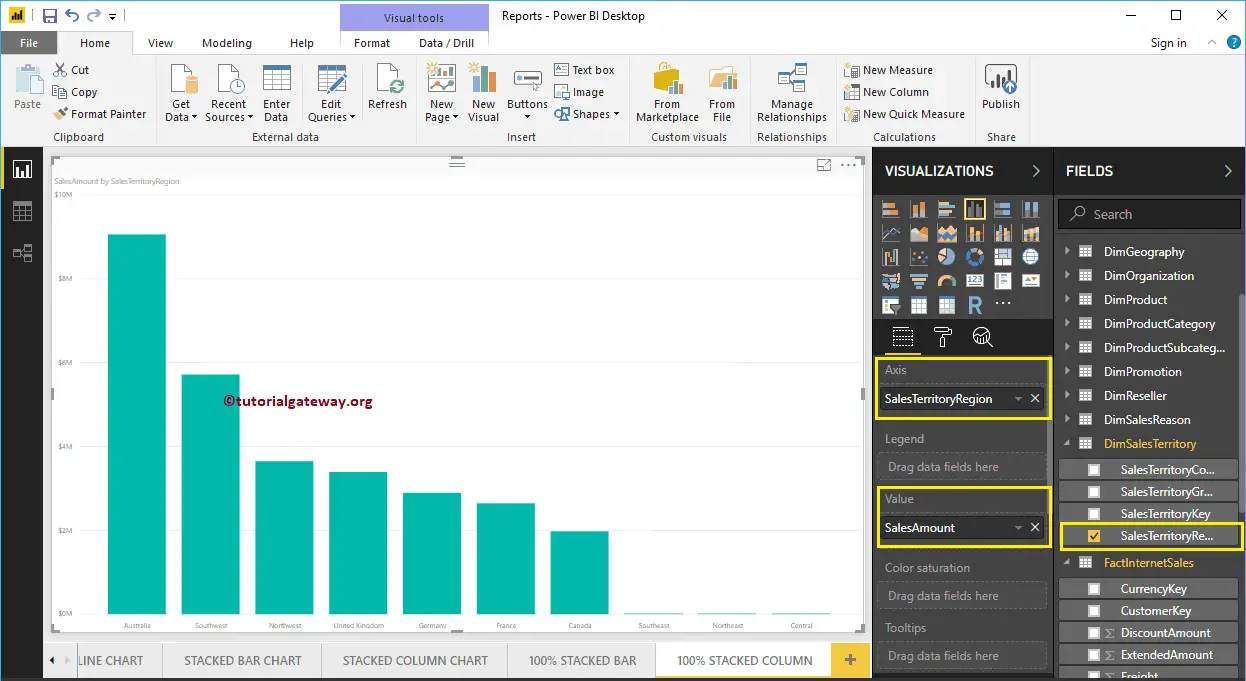
Click on the 100% Stacked Column Chart under the Visualization section. It automatically converts the Column Chart into a 100% Stacked Column Chart.
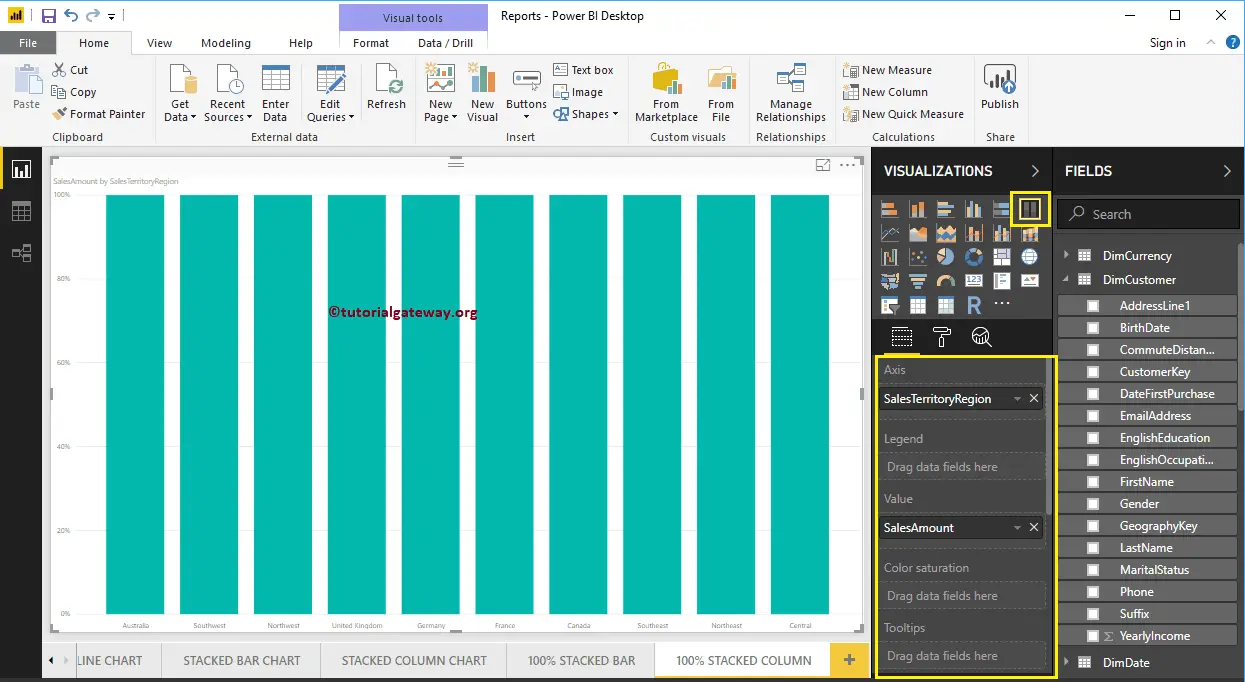
Next, we are adding Customer Occupation to the Legend section to convert it into the 100% Stacked Column Chart.
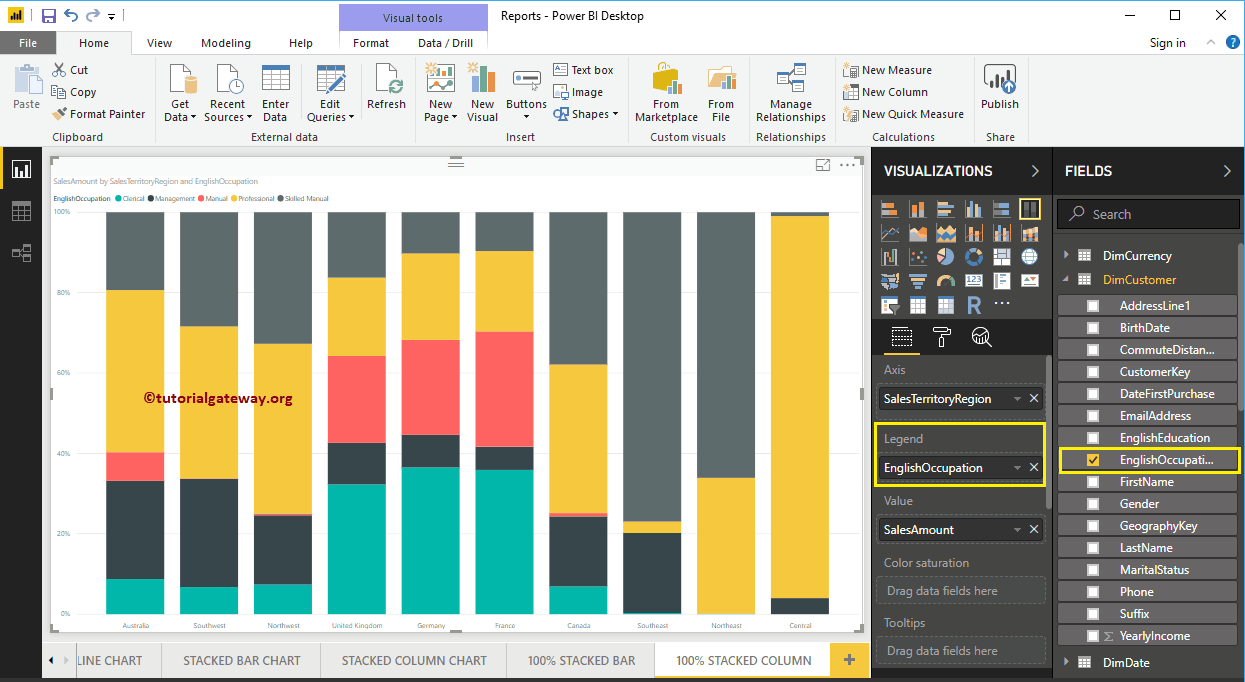
Hover over any portion of a bar shows the Tool-tip of Sales Territory Region Name, Customer Occupation, and Sales Amount (in percentage)
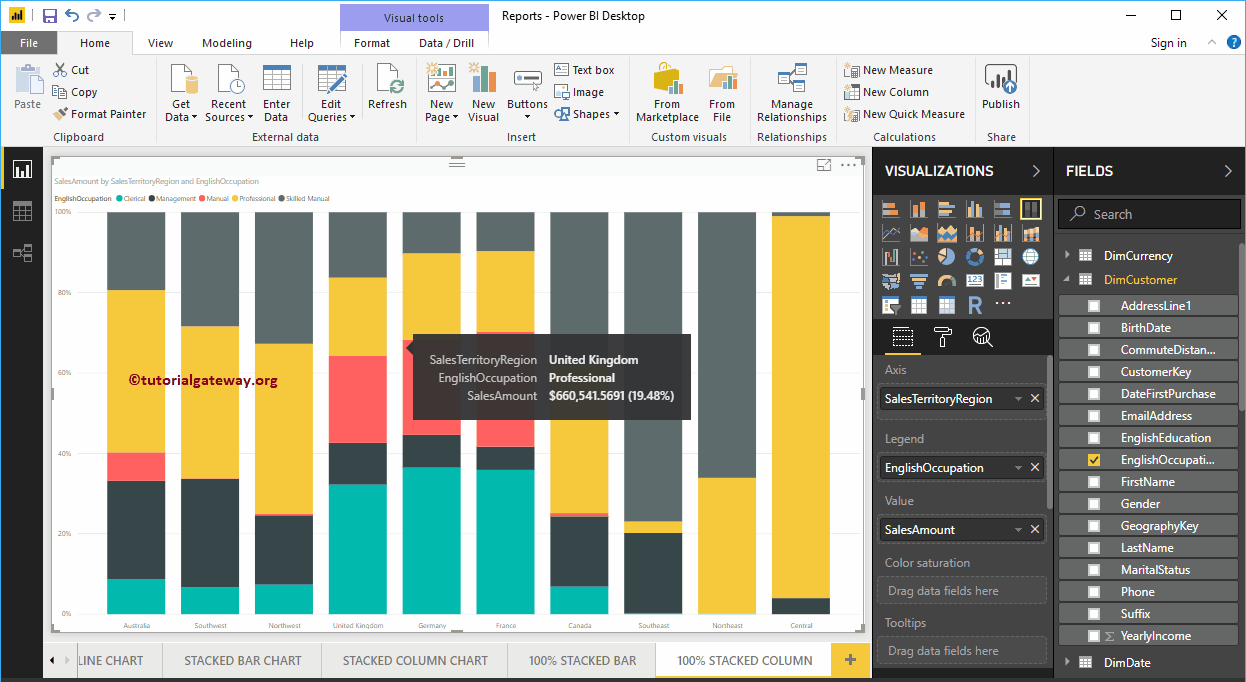
Create 100% Stacked Column Chart in Power BI Approach 2
First, click on the 100% Stacked Column Chart under the Visualization section. It automatically creates a 100% Stacked Column Chart with dummy data, as shown in the below screenshot.
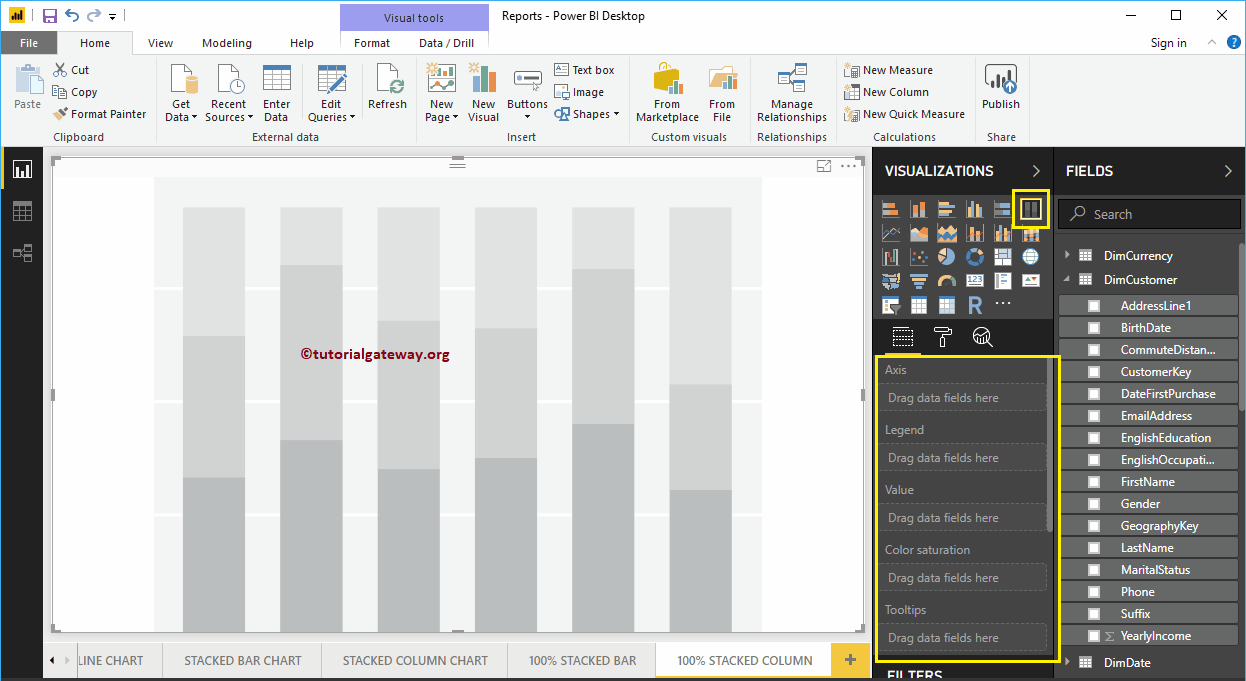
To add data to the Power BI 100% Stacked Column Chart, we have to add the required fields:
- Axis: Please specify the Column that represents the Vertical Bars.
- Legend: Specify the Column to divide the Vertical Bars.
- Values: Any Metric value such as sales amount, Total Sales etc.
Let me drag the Sales Amount from the Fields section to the Values field and the Sales Territory Region Name field to the Axis Section.
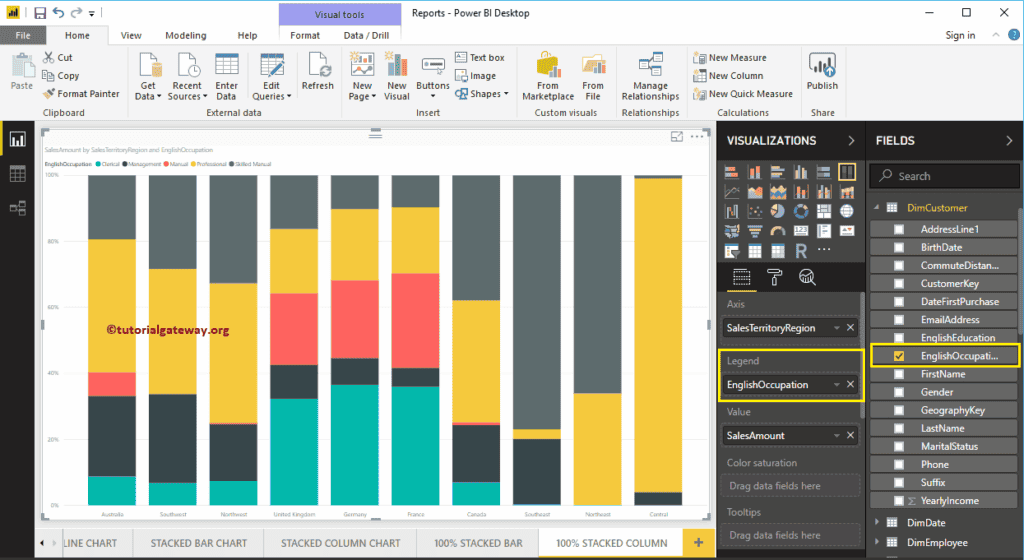
Next, add the English Occupation from the DimCustomer table to the Legend section. You can do this by dragging Occupation to Legend section, or simply checkmark the English Occupation column.
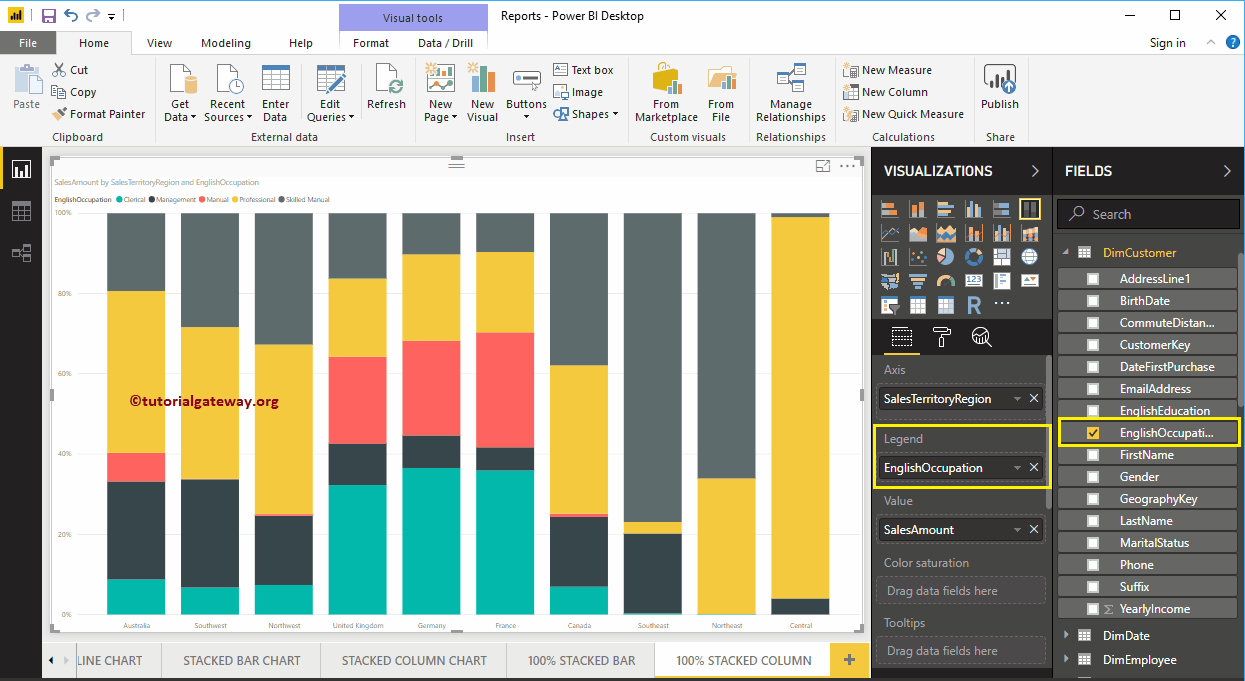
In Power BI Charts, Data Labels display information about every individual group of a vertical bar (Sales Territory Region). In this case, it displays the Sales Amount (in percentage) of each occupation. Let me Enable the Data Labels so that you can see the Percentage of each group.
To enable data labels, please go to the Format tab and toggle Data labels option to On. Let me change the Color to White, Font family to DIN, and Text Size to 20
Now you can see a 100% Stacked Column Chart with Percentage values
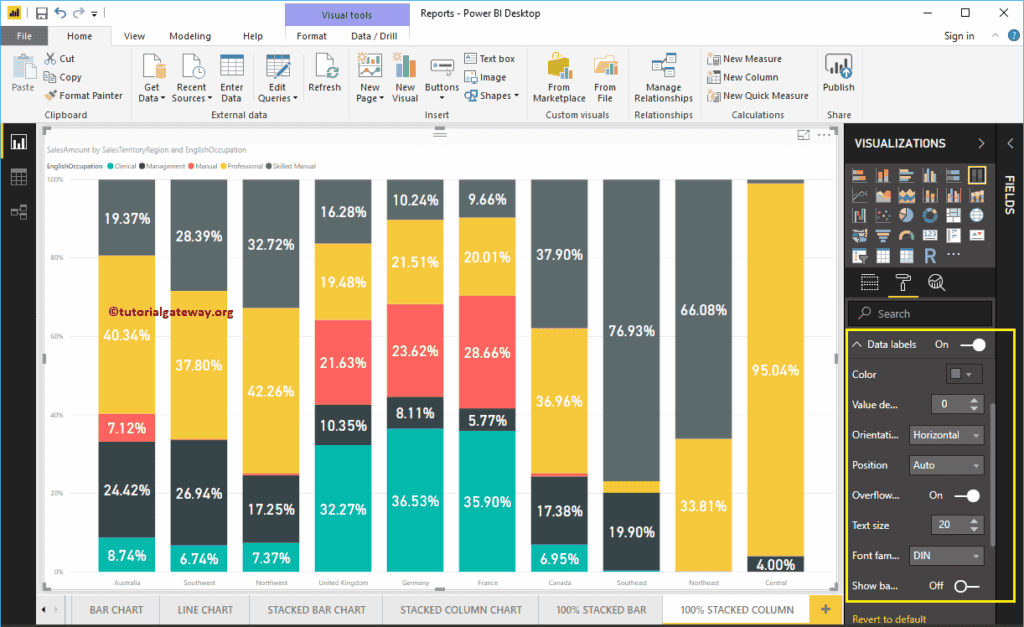
Let me do some quick formatting to this Power BI 100% Stacked Column Chart
NOTE: Formatting options for both Stacked Column Chart and 100% Stacked Column Chart are the same. So, I suggest you refer to the Format Stacked Column Chart article to understand the steps involved in formatting the 100% Stacked Column Chart properties.
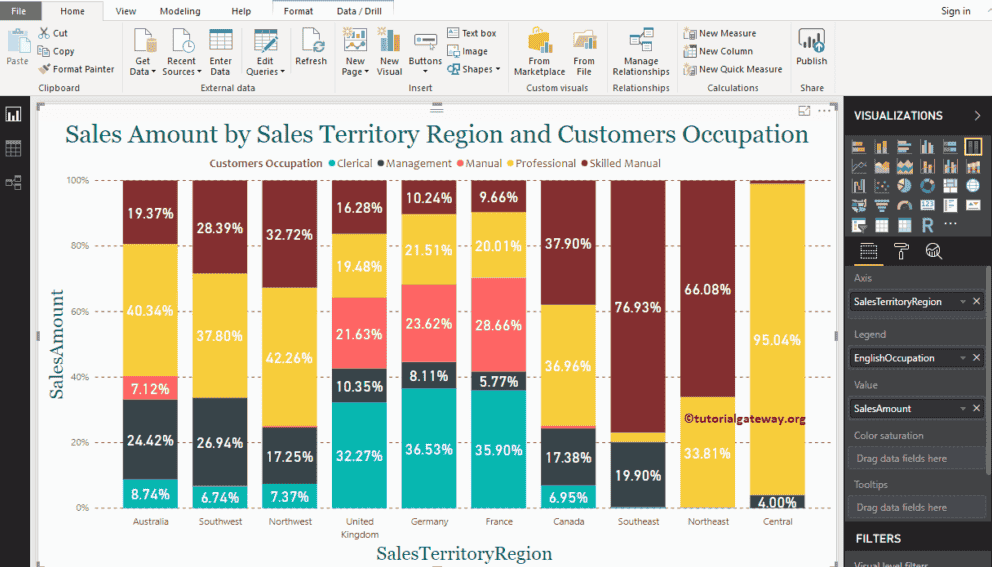
This time, we added State Province Name to Axis and Sales Territory Region to Legend for a 100% stacked column chart. From the screenshot below, you can see, Sales Territory Region is acting as the Bar Color. It is because you can’t group the Sales Territory Region inside a State ( State Name Inherited from Territory).
